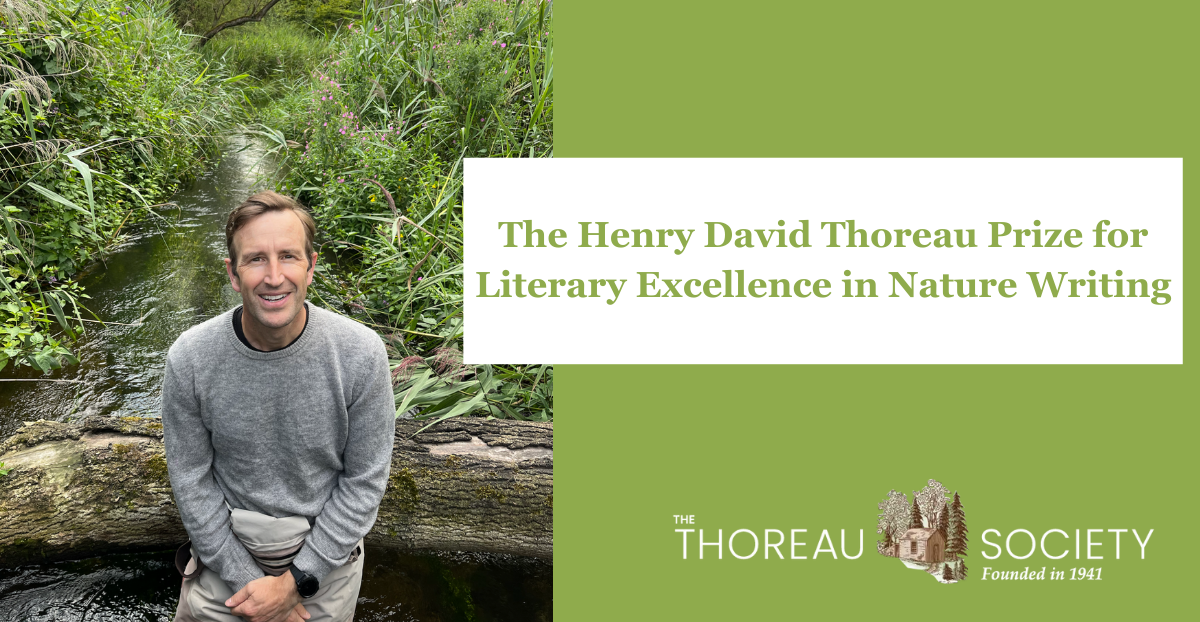Robert Macfarlane is the winner of the 2025 Henry David Thoreau Prize for Literary Excellence in Nature Writing
The Thoreau Prize is a literary award granted annually to an accomplished writer in English who, with a comparable intensity, wishes to speak for nature and embodies the spirit of Thoreau as a gifted writer, insightful naturalist, and ethical thinker. Although it has traditionally been granted as a lifetime achievement award, the prize may also be given to mid-career nature writers who have demonstrated exceptional promise in any genre (poetry, fiction, or nonfiction). The award consists of $2,500 and a commemorative gift.
Robert Macfarlane is internationally renowned for his writing on nature, people, and place. His best-selling books include Underland, Landmarks, The Old Ways, The Wild Places, and Mountains of the Mind; they have been translated into more than thirty languages, won many prizes around the world and been widely adapted for film, music, theatre, radio, and dance.
Macfarlane’s newest book, Is a River Alive?, is scheduled for publication in May 2025. Called by The Guardian “one of the big publishing events (if not the biggest) of 2025,” Is a River Alive? takes readers to threatened river systems on three continents: the cloud forests of Ecuador, the creeks and lagoons of southern India, and the Mutehekauor Magpie River of northeastern Quebec. At its heart is a single, transformative idea: that rivers are not mere matter for human use, but living beings – who should be recognized as such in both imagination and law.
Robert is a Fellow and Professor of Environmental Humanities at Emmanuel College, Cambridge and a Fellow of the Royal Society of Literature. In 2017 he was awarded the E.M. Forster Award for Literature by the American Academy of Arts and Letters.
